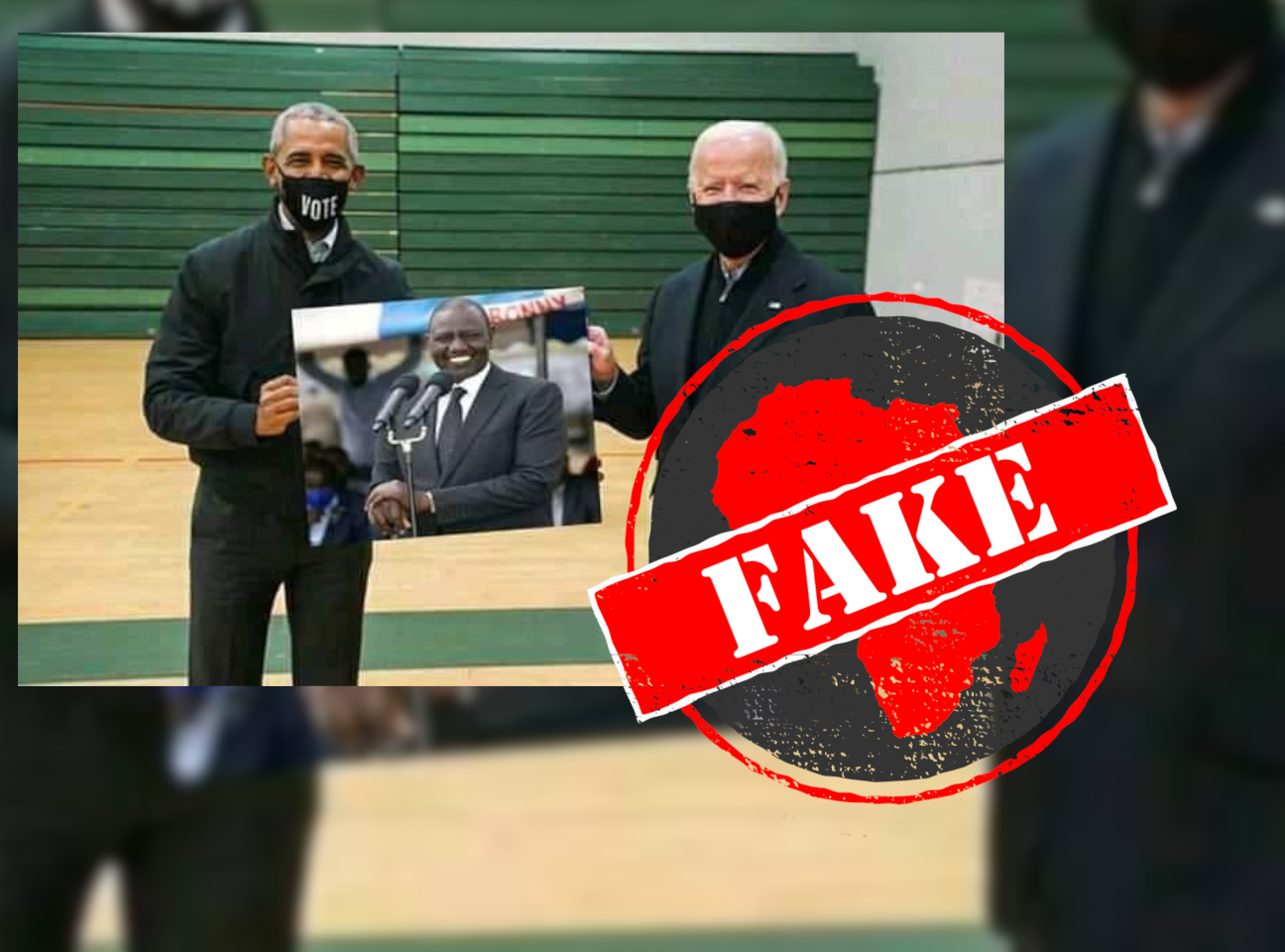Obama is wearing a black mask bearing the word “VOTE”. The photo was posted with the comment: “Next…..”
Ruto has declared his interest in succeeding president Uhuru Kenyatta, whose second term ends in 2022. The photo, posted shortly after major media outlets reported on 7 November 2020 that Biden had won the US election, implies that Obama and Biden endorse Ruto’s bid.
It was posted on a Facebook page with the name “Roselyn Akombe”. Dr Roselyn Akombe is a former commissioner of Kenya’s electoral commission. She fled to the US fearing for her life after the country’s 2017 election was nullified.
Did Akombe post the photo of Obama and Biden holding a picture of Ruto? And is the photo real? We checked.

Page name changed repeatedly
The page’s transparency section reveals that the page was created on 3 August 2016 with the name “HON DON Mwasambu Mwaboza”.
The page’s name has since changed three times. On 27 June 2017 it became “The Aspirant 2017”, then on 21 September 2017 it was changed to “R.I.P. Hon Joel Onyancha”. On 13 November 2017 it was again renamed, as “Roselyn Akombe.”
Akombe’s website links to her official Facebook page, named “Dr Roselyn Akombe”. The former electoral commissioner did not post the photo.
‘Don’t boo – vote!’
A Google reverse image search of the photo reveals that it first appeared online on 31 October 2020, when it was posted on Obama’s verified Twitter account. He tweeted: “Don’t boo – vote! Happy Halloween, everybody. Iwillvote.com .”
Don't boo — vote! Happy Halloween, everybody. https://t.co/XdZz4dh82T pic.twitter.com/A28ZuxPf4i
— Barack Obama (@BarackObama) October 31, 2020
In the original photo, Obama and Biden are holding a placard with the words “DON’T BOO, VOTE!”
The picture of Ruto has been photoshopped onto the original image. – Grace Gichuhi
Republish our content for free
For publishers: what to do if your post is rated false
A fact-checker has rated your Facebook or Instagram post as “false”, “altered”, “partly false” or “missing context”. This could have serious consequences. What do you do?
Click on our guide for the steps you should follow.
Publishers guideAfrica Check teams up with Facebook
Africa Check is a partner in Meta's third-party fact-checking programme to help stop the spread of false information on social media.
The content we rate as “false” will be downgraded on Facebook and Instagram. This means fewer people will see it.
You can also help identify false information on Facebook. This guide explains how.


Add new comment